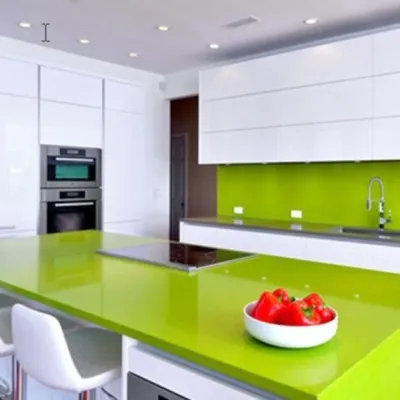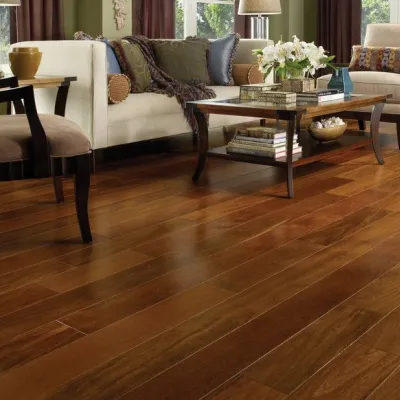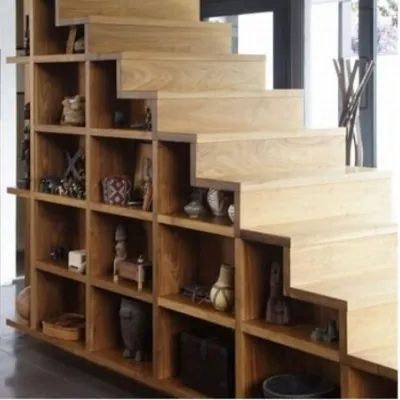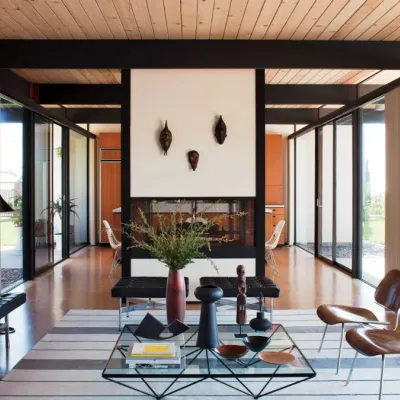When a person approaches the house, he can see the whole picture, talking about the general character traits of the owners of this house. When the visitor knocks on the door, he can make a more accurate picture of the house's residents. And just as they say about a person: "They meet them by their clothes ..", so the door gives an idea of the history of the family living in this house, of their character, of current and past welfare. Here, for example, is the door in Essaouira, Morocco. Reliable, made of expensive wood, decorated around the perimeter with a carved geometric pattern. There is a decoration in the form of a circle and an arrow pointing down in the door center. This pattern is made of bronze rivets with a sizeable hemispherical hat; A bell is located in the pattern's center. And carved designs of double tridents are situated on the edges. The new brass lock indicates that the house owners live in abundance and have the means to maintain the door's appearance.
Door in Essaouira
Here is a classic paneled door, decorated with an arched transom divided into 4 sections, forming the sun's rays. Despite its age, the door still looks great. An experienced carpenter worked on this door. Such a door in the old days was a rather expensive pleasure since almost all the wood was imported.
Old door in Morocco
In the next house, with a facade decorated with Moroccan mosaic, the front door is inserted into an arched opening framed by a dark stone. Pay attention to the keystone at the top of the arch. It is decorated with carvings. The front door itself is difficult to distinguish against the background of the same wooden frame. This creates a sense of the grandeur of the door. This carved door and rounded corners fit perfectly together. Even though the door is old and some rivets have flown off, it still looks great. In general, it is a good idea to make a relatively simple wooden door and decorate it with bronze or black iron rivets, placing them in an interesting pattern.
The door in Essaouira
The next door looks very solid. The rich frame of the arch with a decorative keystone, the columns on the sides emphasize that this door is an old rich house. The plank door is traditionally decorated with bronze rivets and a doorknob ring in the mouth of a lion. What sets this door apart from the others is its beautiful forged grille that closes the transom arch above the door.
Door in Essaouira
The barrel-shaped door with a semicircular top is inscribed in an unusual arch in the shape of a horseshoe. Its sidewalls are slightly convex as if emphasizing the massiveness of the structure above it. The horseshoe is also depicted on the keystone. Maybe it was a blacksmith's workshop, or perhaps a pirate tavern, or a meeting place for smugglers.
Door in Essaouira
This door is similar to a Russian gate with a door that can still be found in small towns.
What is surprising here is the skillful design of the arch, with its crown stone in the form of a goat’s head. Personally, I do not understand how and what the pattern around the arch is made of. Who lived behind this door?
Doors in Essaouira
The blue door speaks of the bygone days of wealth and prosperity. It is similar to the previous entry with the photo above. But the framing is simpler, and the door is in a much worse condition. Although, it looks much better than many standard doors in municipal buildings.
Door design
Old door in Morocco
Pretty simple, like a door upholstered in metal sheet riveted. But the door arch is a work of art. The rectangular ceiling above the door is decorated with tiles. The stone framing the arch, possibly sandstone is very well fitted and tapers at the base, making the door arch not round but almost round. At the junction of the arch and the pilasters framing the doorway, there used to be a Moroccan mosaic, but only a few pieces remained of it. The rest may be located on the seashore, on the beach, so that tourists can collect them.
Door color
This door is leading to the Scheherazade of our time. Its color is noticeably different from the traditional colors of Morocco - green and blue. But the door's shape with an arched transom and the forged lattice in the center remained conventional for receiving letters.
The green paneled door doesn’t seem to be from this house. The almost round-shaped arch is well preserved, speaking of the old house. It is made of hand-molded bricks and framed by Arabic mosaics. Where did she come from? - Guess for yourself.
paneled arched door
The blue door was probably often kicked, the paint peeling so much, exposing the earlier blue coating.
Blue door
This paneled door with a large radius, slightly changing the rectangular shape, is inscribed in the beam arch, made with small but voluminous inserts in the form, which give the door massiveness.
Carved door
All photos were taken by Eugene Deryagina in Morocco in the city of Essaouira.



